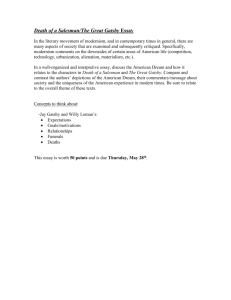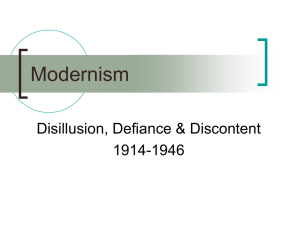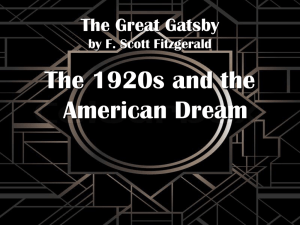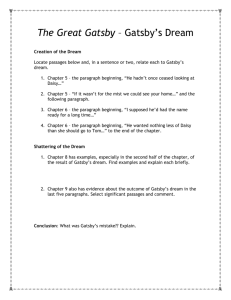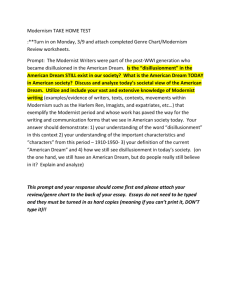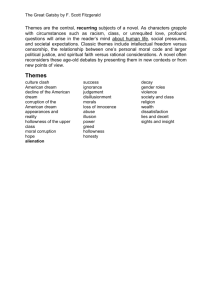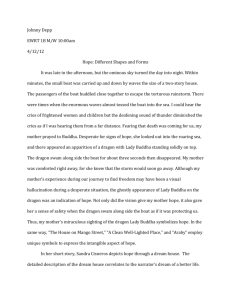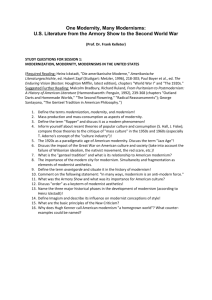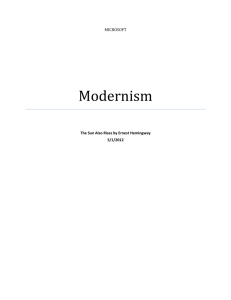I.1. Introduction: Early American Literature – The Period of
advertisement
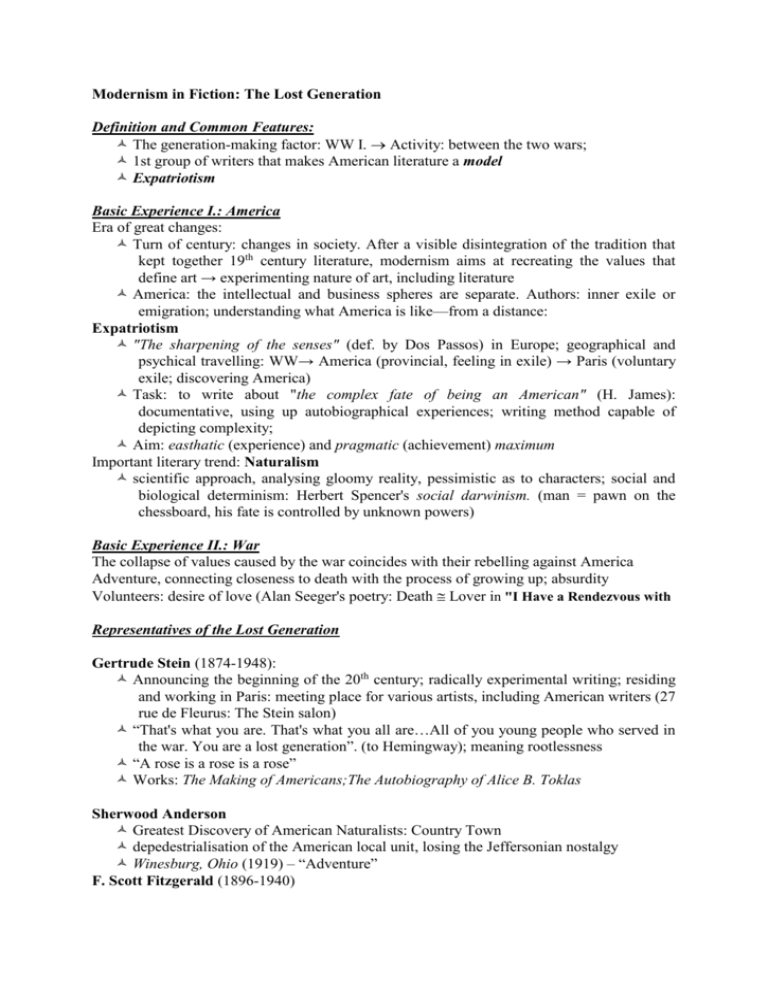
Modernism in Fiction: The Lost Generation Definition and Common Features: The generation-making factor: WW I. Activity: between the two wars; 1st group of writers that makes American literature a model Expatriotism Basic Experience I.: America Era of great changes: Turn of century: changes in society. After a visible disintegration of the tradition that kept together 19th century literature, modernism aims at recreating the values that define art → experimenting nature of art, including literature America: the intellectual and business spheres are separate. Authors: inner exile or emigration; understanding what America is like—from a distance: Expatriotism "The sharpening of the senses" (def. by Dos Passos) in Europe; geographical and psychical travelling: WW→ America (provincial, feeling in exile) → Paris (voluntary exile; discovering America) Task: to write about "the complex fate of being an American" (H. James): documentative, using up autobiographical experiences; writing method capable of depicting complexity; Aim: easthatic (experience) and pragmatic (achievement) maximum Important literary trend: Naturalism scientific approach, analysing gloomy reality, pessimistic as to characters; social and biological determinism: Herbert Spencer's social darwinism. (man = pawn on the chessboard, his fate is controlled by unknown powers) Basic Experience II.: War The collapse of values caused by the war coincides with their rebelling against America Adventure, connecting closeness to death with the process of growing up; absurdity Volunteers: desire of love (Alan Seeger's poetry: Death Lover in "I Have a Rendezvous with Representatives of the Lost Generation Gertrude Stein (1874-1948): Announcing the beginning of the 20th century; radically experimental writing; residing and working in Paris: meeting place for various artists, including American writers (27 rue de Fleurus: The Stein salon) “That's what you are. That's what you all are…All of you young people who served in the war. You are a lost generation”. (to Hemingway); meaning rootlessness “A rose is a rose is a rose” Works: The Making of Americans;The Autobiography of Alice B. Toklas Sherwood Anderson Greatest Discovery of American Naturalists: Country Town depedestrialisation of the American local unit, losing the Jeffersonian nostalgy Winesburg, Ohio (1919) – “Adventure” F. Scott Fitzgerald (1896-1940) 1st writer of the new America the America of money (WW I → huge industrial progress, wealth + progressive puritanism (alcohol ban) → hedonism) his own romance of / and money: exceptional attitude to money: the means to rise into position; writes for magazines for money not experimental in structure, originality lies in atmosphere & topic Writer of the “American Dream” (concept: James Truslow Adams) The Great Gatsby (1925); (Gatsby pursuing the Dream embodied by Daisy; West Egg vs; East Egg society; the self-made man as success story but the failure of the Dream, for the Dream is beyond the money that is necessary to accomplish it;) "Winter Dreams", "Babylon Revisited" (of the '30s); Ernest Hemingway (1899-1961) Background: expatriate in the 1920s living mainly in France, Spain, returning to US occasionally; mostly avoiding typical topics of America and of the era; exhausting his autobiographical experiences unique (self-)education: many sports (eg. boxing) as training to become the ideal man journalist experience: dense cable language iceberg principle (1/8 visible, 7/8 supportive) War in Literature: short story cycle: In Our Time, 1925 ◦ vignettes + stories make a unity of novel; (cf. Winesburg, Ohio) ◦ vignette: snapshots, stating facts with total intensity, presenting a state of mind; novels: A Farewell to Arms (1929); For Whom the Bell Tolls (1940); drama: The Fifth Column, 1937 Expatriotic experience: Fiesta (The Sun Also Rises) (1926); Important short stories: “The Short Happy Life of Francis Macomber” (death experience to become a man), “The Snows of Kilimanjaro” (money as corruptive force; investigating the relation between good life vs good art; experience and art), “The Killers”, “Indian Camp”, “Hills like White Elephants”; The Hemingway Code Hero: Man needs test Grace under pressure: when confronting death, man needs to behave in an acceptable way Only by confronting death man can discover his own sense of being, his own potentiality The Old Man and the Sea (1952) Nobel Prize, 1954
